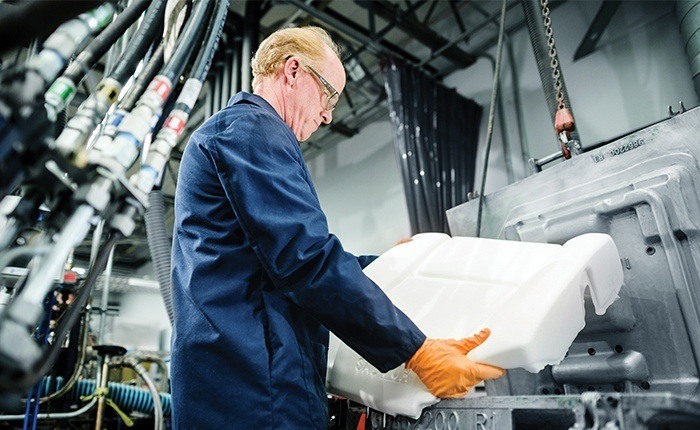A more efficient release agent is changing the production of two-wheeler seats made of PU foam.

Case Study Polyurethane:
Less buildup in the mould by using a new release agent.
WHAT WE ACHIEVED.
When a large manufacturer of foam two-wheeler seats was facing the issue of high mould buildup — which required frequent cleanings that slowed production and caused accelerated wear to the moulds — we were confident we could help. We replaced the less technically advanced release agent they were using with a higher-efficiency product that exhibited a consistent level of quality, reducing the consumption of the release agent by 50%. Mould cleanings were also cut by half, enhancing mould life and increasing their production efficiency. VOC levels on the shop floor and overall costs (a crucial factor for the manufacturer) were also lowered. Even more critically, we offered a solution that provided a safer work environment.
HOW WE GOT THERE.
Employing the highly analytical methods that Chem-Trend is known for, we conducted multiple trials with a product we had used to successfully decrease mould buildup for other customers. Our first trials were limited. We worked toward gathering accurate data, as the operator who was unaccustomed to using a higher-efficiency release agent that required a lower application rate gained more experience with the new product. We helped build confidence by providing shop-floor training to the operator. A longer bulk trial followed. Upon analysing their daily production reports, we quickly saw a dramatic reduction in product consumption and mould cleaning frequency.
OUR SOLUTION.
The results were so impressive that after utilizing Chem-Trend’s products and methods for just over half a year, they made the switch at their other plants as well. Reducing mould buildup with our release agent caused a domino effect: cleanings were slashed by half, which decreased downtime and extended time between mould replacements. All of these changes led to significant monetary savings. Overall, we were able to reduce the production costs of their foam components by 35%. Additionally, the health, safety, and environmental aspects of the customer’s facility were improved through our product’s lower VOC levels.



DATA INSIGHTS
 50% reduction in Mould cleaning frequency
50% reduction in Mould cleaning frequency 50% Reduction In release agent consumption
50% Reduction In release agent consumption 35% reduction of costs
35% reduction of costsHANDPRINT IMPACT
At Chem-Trend, we pride ourselves on our long history of sustainability efforts. However, it is our effect on our customers’ processes that provides the greatest impact. It goes beyond our global Footprint; it is our even wider Handprint.
Here, we achieved the following:
- Reduced energy consumption due to lower levels of transportation required by decreased release agent usage
- Reduced waste of cleaning supplies due to fewer required cleanings
- Reduced energy waste due to decrease in downtime
- Equipment life span improvements, allowing for a long-term reduction in materials
- Lower VOC levels
Materials
Waste
Energy
Emissions

